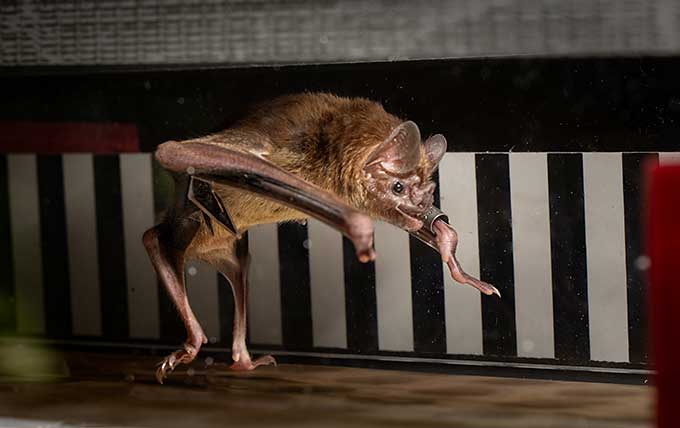
Animals
Putting vampire bats on treadmills revealed an energy-burning quirk
A mini gym for bats shows that vampire bats burn amino acids, rather than the carbs or fats other mammals rely on during exercise.
By Susan Milius
Come explore with us!

A mini gym for bats shows that vampire bats burn amino acids, rather than the carbs or fats other mammals rely on during exercise.

Earth’s ongoing fever threatens to push entire forests toward this heat limit — and possible death.

These fibrous networks are the reason plants think fungi are such "fun guys.”

Computer scientist Eakta Jain is looking at human-horse interactions for ideas about how to design robots that work well with people.

Linking types of bacteria to specific flavors could help cheesemakers tweak their products — or even develop new cheese flavor.

Teamwork makes green-work! Collaborating scientists came up with an electrifying farming trick that could make sunlight optional.

Inorganic molecules include salts, minerals and other compounds that lack organics’ carbon-hydrogen bonds.

The adolescent brain has a hard time resisting junk food. But high-fat, high-sugar diets can interfere with learning and pose risks to mental health.

These bad-news invaders are spreading across the United States. As they turn forest debris into bare ground, soils and ecosystems are changing.

Scientists had not considered fat a 'taste.' The brain begs to differ, new data show.